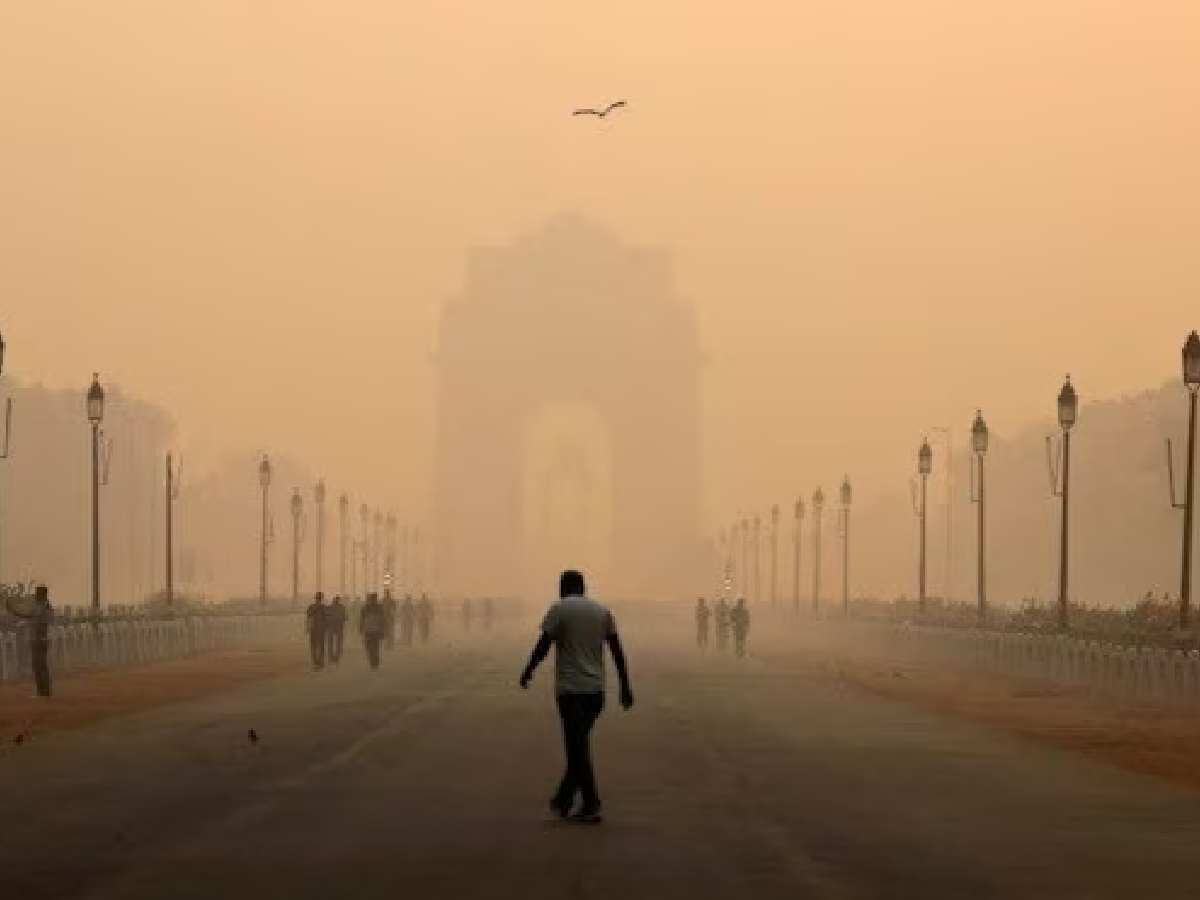
After a two-day break, air quality in Delhi dropped back into the “very poor” range on Sunday, as the winds that had helped improve pollution levels over the past few days lost their intensity.
At 9 am, the Air Quality Index (AQI) for Delhi was recorded at 359, showing a notable rise from Saturday’s level of 255, according to data from the Central Pollution Control Board (CPCB).
Out of 40 monitoring stations, data from 36 was available, revealing that eight stations — Anand Vihar, Alipur, Bawana, Jahangirpuri, Mundka, Wazirpur, Vivek Vihar, and Sonia Vihar — fell into the “severe” AQI category, while the remaining 28 were classified as “very poor”.
The AQI scale categorizes values from zero to 50 as ‘good’, 51 to 100 as ‘satisfactory’, 101 to 200 as ‘moderate’, 201 to 300 as ‘poor’, 301 to 400 as ‘very poor’, and 401 to 500 as ‘severe’.
The India Meteorological Department (IMD) noted that wind speed in the city was calm at 0 KMPH. Delhi’s air quality had previously improved from the ‘very poor’ to the ‘poor’ category over the last two days due to favourable wind conditions.
A layer of smog covered the city in the early hours on Sunday, causing visibility issues.
The minimum temperature recorded was 20.1 degrees Celsius, slightly above the season’s average.
Humidity was measured at 93 per cent in the morning, as reported by the IMD.
Clear skies are forecasted throughout the day, with a maximum temperature expected to reach around 33 degrees Celsius.
Delhi’s Environment Minister, Gopal Rai, held a meeting with the Centre on Saturday, attended by Union ministers Shivraj Singh Chouhan and Bhupender Yadav, along with environment ministers from neighbouring states, to evaluate and address the worsening air quality in the region.
Also Read: Delhi: Authorities intensify efforts as air quality dips into “very poor” category
In a press conference following the meeting, Rai highlighted the pressing need to combat air pollution across northern India. “The next 15 days are crucial,” he said, noting that seasonal winds from the northwest might bring additional pollutants into Delhi and surrounding areas, intensifying the crisis.
“While stubble burning has decreased, the post-Diwali period will be critical,” he added.
(With inputs from PTI)
The likely Rs 1,000 crore sale of the Tehri Garhwal House, former royal residence on…
On the principle of 'Sarvajan Hitaya, Sarvajan Sukhaya' -- Welfare for all, Happiness for all…
With hundreds reported missing in Delhi this year, this guide explains how families can use…
The case came to light after a 35-year-old woman from Panipat alleged that she had…
During the investigation, CCTV footage helped identify the suspects, according to Delhi Police
The launch took place during the inauguration of the Delhi Police Exhibition Hall at Connaught…